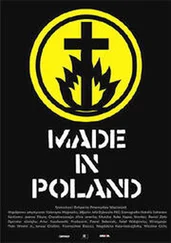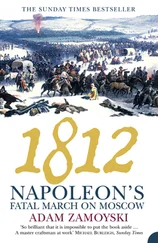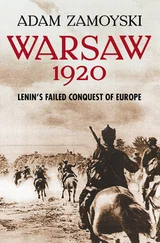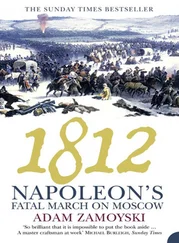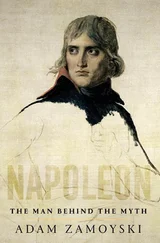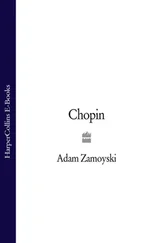POLAND A HISTORY
ADAM ZAMOYSKI
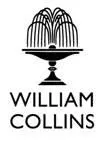
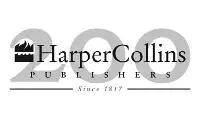 Copyright
Copyright
HarperPress
An imprint of HarperCollins Publishers Ltd. 1 London Bridge Street London SE1 9GF
www.harpercollins.co.uk
Published by HarperPress 2009
Copyright © Adam Zamoyski Ltd 2009
The Polish Way published by John Murray in 1987
Adam Zamoyski asserts the moral right to be identified as the author of this work
Cover shows detail from a parchment scroll of 1605, showing a member of the Husaria, the Polish winged cavalry
A catalogue record for this book is available from the British Library
All rights reserved under International and Pan-American Copyright Conventions. By payment of the required fees, you have been granted the non-exclusive, non-transferable right to access and read the text of this ebook on-screen. No part of this text may be reproduced, transmitted, down-loaded, decompiled, reverse engineered, or stored in or introduced into any information storage and retrieval system, in any form or by any means, whether electronic or mechanical, now known or hereinafter invented, without the express written permission of HarperCollins ebooks
HarperCollins Publishers has made every reasonable effort to ensure that any picture content and written content in this ebook has been included or removed in accordance with the contractual and technological constraints in operation at the time of publciation
Source ISBN: 9780007282753
Ebook Edition © OCTOBER 2009 ISBN: 9780007322732
Version: 2017-04-25
Cover
Title Page
Copyright
MAPS
TABLES
NOTE ON POLISH PRONUNCIATION
PREFACE
ONE: People, Land and Crown
TWO: Between East and West
THREE: The Jagiellon Experience
FOUR: Religion and Politics
FIVE: Kingdom and Commonwealth
SIX: The Reign of Erasmus
SEVEN: Democracy versus Dynasty
EIGHT: Champions of God
NINE: A Biblical Flood
TEN: Morbus Comitialis
ELEVEN: The Reign of Anarchy
TWELVE: Renewal
THIRTEEN: Gentle Revolution
FOURTEEN: Armed Struggle
FIFTEEN: Insurgency
SIXTEEN: The Polish Question
SEVENTEEN: Captivity
EIGHTEEN: Nation-Building
NINETEEN: The Polish Republic
TWENTY: War
TWENTY-ONE: The Cost of Victory
TWENTY-TWO: Trial and Error
TWENTY-THREE: Papal Power
TWENTY-FOUR: The Third Republic
Keep Reading
Index
By The Same Author
About the Publisher
NOTE ON POLISH PRONUNCIATION
Polish words may look complicated, but pronunciation is at least consistent. All vowels are simple and of even length, as in Italian, and their sound is best rendered by the English words ‘sum’ ( a ), ‘ten’ ( e ), ‘ease’ ( i ), ‘lot’ ( o ), ‘book’ ( u ), ‘sit’ ( y ).
Most of the consonants behave in the same way as in English, except for c , which is pronounced ‘ts’; j, which is soft, as in ‘yes’; and w , which is equivalent to English v. As in German, some con—sonants are softened when they fall at the end of a word, and b , d , g , w , z become p , t , k , f , s , respectively.
There are also a number of accented letters and combinations peculiar to Polish, of which the following is a rough list:
ó = u , hence Kraków is pronounced ‘krakooff ‘.
ą = nasal a , hence sąd is pronounced ‘sont’.
ę = nasal e, hence Łęczyca is pronounced ‘ wenchytsa ’.
ć = ch as in ‘cheese’.
cz = ch as in ‘catch’.
ch = guttural h as in ‘loch’.
ł = English w, hence Bolesław becomes ‘Boleswaf, Łódz ‘Wootj’.
ń = soft n as in Spanish ‘ mañana ’.
rz = French j as in ‘ je ’.
ś = sh as in ‘sheer’.
sz = sh as in ‘bush’.
?? = as rz (—?? is the accented capital).
ź = A similar sound, but sharper as in French ‘ gigot ’.
The stress in Polish is consistent, and always falls on the pen—ultimate syllable.
The idea that a historian should radically alter his view of the past over the space of a couple of decades is, on the face of it, preposterous. But when I reread my history of Poland, The Polish Way , first published in 1987, which I meant to revise and update for a new edition, I became convinced of the contrary. History did not, as some have argued, come to an end in the intervening two decades, but they have completely changed the perspective.
When I sat down to write that book, few people in western Europe, let alone further afield, had any idea of where Poland lay, and fewer still had any sense of its having a past worth dwelling on. Given that history is made up of an intricate interaction of land, people and culture, Poland presented unique problems. How was the historian to approach a country whose territory had expanded and contracted, shifted and vanished so dramatically, which currently existed as an almost random compromise resulting from the Second World War, and which lay within the imperial frontiers of another power? How was he to treat a people which, from ethnic, cultural and religious diversity had been purged by genocide and ethnic cleansing into a homogeneous society? How to represent a culture which had been largely obliterated, whose remains survived only underground or in exile?
Matters were made no easier by the fact that the entire geo—political space in which Poland existed was also in an unnatural state of suspension, with Germany divided, Russia a bureaucratic totalitarian monstrosity, and the areas inhabited by the Lithuanians, Belorussians and Ukrainians a kind of limbo.
Although the election of a Pole, Karol Wojtyła, to the Holy See as Pope John Paul II, the dramatic rise of Solidarność and a number of books and articles published in the West, along with increased travel, had recently brought Poland into the consciousness of greater numbers of people, it was not until the collapse of the Soviet project in 1989 that the situation began to alter significantly. It was only then that Poland and the other countries of the region came back to life as political entities. And that fundamentally altered the way in which they are perceived.
The concurrent process of globalisation and the huge shifts in economic and military power taking place around the world have also made it easier for the historian to represent a foreign country to his readers. The fact that what were then viewed as ‘developing countries’ (with all the condescension that term implied) are now emerging as the major players of the future has radically altered attitudes in the hitherto dominant nations of the West. Put simply, the historian has less to explain and fewer prejudices to break down. But the real significance of the events of 1989 only began to make itself felt later.
When I was writing my book, Europe was divided by the Iron Curtain. Crossing it was an awesome and bizarre experience for anyone brought up in the West—the coils of barbed wire, the watchtowers, the machine guns aimed at the traveller and the ubiquitous guards with their Alsatian dogs were richly redolent of Nazi concentration camp and Soviet gulag. Not surprisingly, since this absurd barrier was one of the last surviving vestiges of a long historical process that had reached its apogee in the twin abominations of Soviet communism and German fascism.
Читать дальше
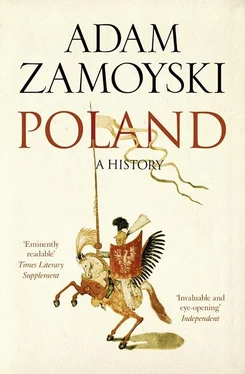

 Copyright
Copyright